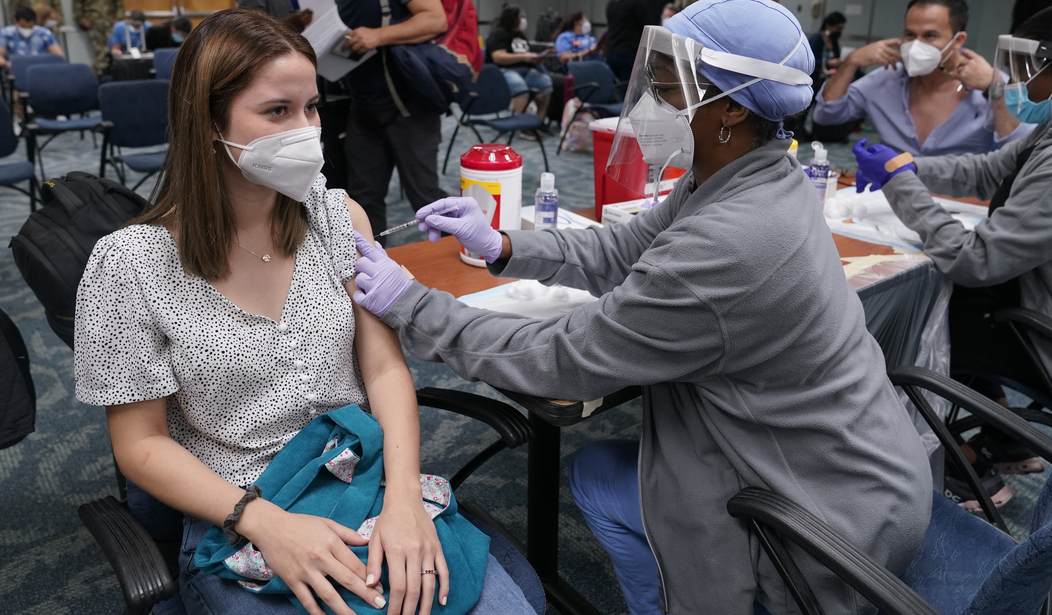A strange but true fact about this year’s summer wave of COVID versus last year’s summer wave: By this time in 2020, hospitalizations were already receding in the south. Texas, Florida, and Louisiana all peaked in late July while Alabama finally began to decline in early August. We’re almost three weeks into August in 2021 and it’s not clear that any of those states have peaked yet.
Although maybe a couple have. More on that in a second.
Texas clearly isn’t at the peak yet, as their case and epidemiological curves are still on the way up. The “summer wave” will be a fall wave if things don’t calm down soon.

The state’s own health bureaucracy isn’t sugar-coating it either:
Hospital capacity concerns worsening. Fatalities are increasing faster. The Delta variant has Texas in one of its worst fights all pandemic. #COVID19TX Update:
⬆️13,457 new confirmed cases (7-day avg)
⬆️100 fatalities reported (7-day avg)
⬆️12,402 current hospitalizations pic.twitter.com/jHZdSHnAZf— Texas DSHS (@TexasDSHS) August 18, 2021
Texas has the most pediatric hospitalizations for COVID in the country and some rural hospitals are so full up with adults that they’re having to send them out of the county for treatment — only to find that there’s no capacity there either. “We have no beds, and then that’s the end of the conversation. Some will say ‘we are closed, we are on full divert, we’ve been on full divert for two weeks,'” one hospital exec told a local news station. “Sometimes on the other end of the phone you get someone that says, ‘I’m sorry, I’m so sorry.’ Because they know we are desperate.”
The southern half of the country needs some good news about when the wave might end. Today it finally got some:
CDC update… https://t.co/59vbbyXuh4 pic.twitter.com/fWcMqPfH2S
— Kyle Lamb (@kylamb8) August 19, 2021
That’s cases, not hospitalizations. The latter may keep rising for a few weeks since they’re a lagging indicator. Declining cases will be our first evidence of a peak, and here’s that evidence. Maybe Florida has turned the corner.
Maybe Louisiana has too:

Presumably the reason the summer wave has lasted longer in the south this year is a simple function of when Delta began spreading in the U.S. aggressively. June and early July were slower COVID-wise than they were last year because there was much more immunity across the population following mass vaccination. If not for the new variant, maybe the whole summer would have been slow. But once Delta started burning up communities in late July, it meant that a new spike that wouldn’t crest until mid-August in all likelihood. Here we are now in mid-August and it’s finally begun to abate in Florida and Louisiana. Maybe.
But maybe not. Guess where this data comes from:

That’s the United Kingdom. A few weeks ago there was much rejoicing when the UK’s Delta surge appeared to peak at a much lower level of cases than some scientists expected. At least one expert predicted they’d top out at 100,000 cases per day, although 200,000 couldn’t be ruled due to the extreme contagiousness of the variant. In reality cases reached 55,000 and then began to dip, with hospitalizations following suit. That was a hopeful sign that the UK had reached herd immunity and/or that the Delta wave here in the U.S. and Israel would be similarly brief and undaunting thanks to widespread immunization.
As it’s turned out, Israel is battling a wave so nasty that they’re mulling another lockdown. And the U.S. is back above 1,000 deaths per day for the first time in March. Delta wasn’t as easy for us as it was for the Brits, and now it looks like it may not be so easy for the Brits either with cases, hospitalizations, and deaths rising again. One theory after UK cases suddenly declined last month was that the initial surge was just an artifact of people gathering indoors en masse to watch the Euro 2020 soccer tournament; once the tournament ended, new cases would fall — briefly, until Delta’s spread across the population drove them up again. In other words, the UK’s spike may have been nothing more than a “bump” on a longer curve that’s still headed upward.
That theory is looking pretty good at the moment.
The good news politically for Republicans is that having cases decline in southern states over the next month would prove that schools, which are now back in session, aren’t major drivers of outbreaks and would ease some of the pressure on Ron DeSantis and Greg Abbott. Their opposition to vaccine mandates and mask mandates isn’t popular and has emboldened school districts to defy them in the name of protecting children from infection. The more cases fall, the more parents will calm down and that pressure will ease.








